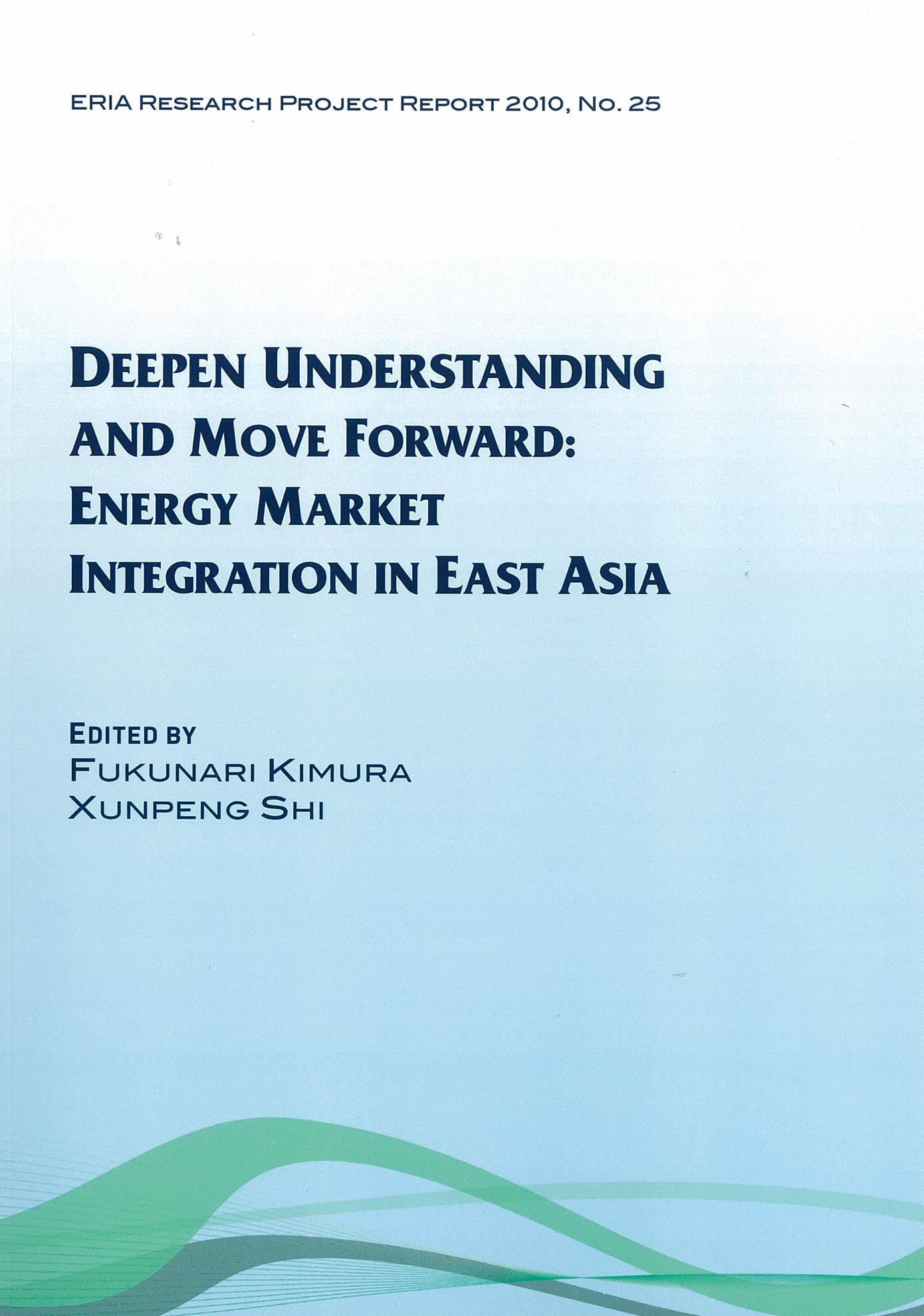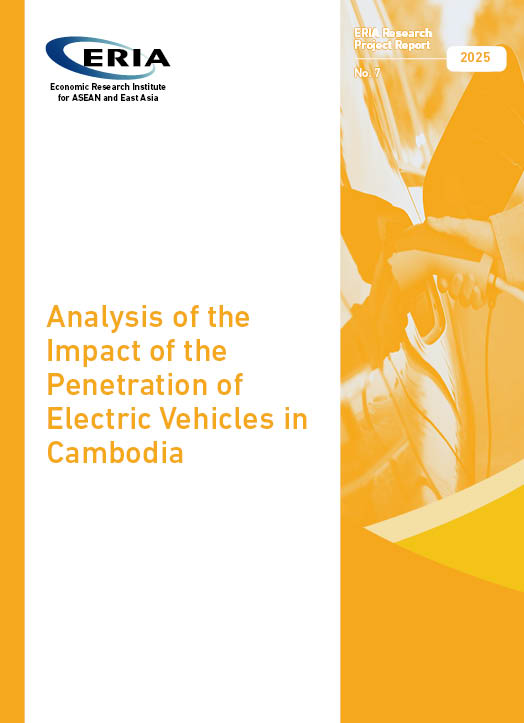Deepen Understanding and Move Forward: Energy Market Integration in East Asia

Date:
1 March 2011Category:
Energy, Investment, TradeType:
Research Project ReportsTags:
Energy, TradePrint Article:
It is widely believed that EMI in East Asia is beneficial for both developed and developing countries. However, such benefits are more often stated in qualitative ways than in quantitative ways. Since the benefits of EMI are not without questions, it is useful to do further quantitative studies to deepen our understanding on the impact of EMI. Moreover, even though EMI in the EAS region seems beneficial and promising, the way toward EMI will not be smooth and therefore the implementation of EMI should be carefully studied. To address these needs, ERIA continued an EMI study project for the second year. Part of this year's studies will further deepen our understanding about the impacts of EMI; while the other part explore ways to move the EMI forward, which echoes the instructions from the leaders and the energy ministers. Considering the debates of shifting away from nuclear energy as a consequent of the triple disasters in Japan, two studies are dedicated to estimate the impact of reducing nuclear energy in national energy mix with Japan as a case study.
List of Project Members
DR. FUKUNARI KIMURA (Project Leader): Professor, Faculty of Economics, Keio University, Japan; Chief Economist, Economic Research Institute for ASEAN and East Asia (ERIA), Indonesia.
DR. XUNPENG SHI (Project Coordinator): Associate Researcher, Economic Research Institute for ASEAN and East Asia (ERIA), Indonesia.
DR. PHILIP ANDREWS-SPEED: Associate Fellow, Chatham House, UK.
DR. MIAOJIE YU: Associate Professor, China Center for Economic Research (CCER), Peking university, China.
DR. YU SHENG: Research Associate, Crawford School of Economics and Government, The Australian National University, Australia.
DR. JIANPNG ZHANG:Professor and Director, Department of International Economic Cooperation: Institute for International Economic Research, NDRC, China.
DR. DAOJIONG ZHA: Professor, School of International Studies, Peking University, China.
DR. TILAK K. DOSHI: Principal Fellow & Head, Energy Economics Division, Energy Studies Institute, National University of Singapore, Singapore.
DR. NEIL SEBASTIAN D'SOUZA: Fellow, Energy Economics Division, Energy Studies Institute, National University of Singapore, Singapore.
DR. SATOSHI KOJIMA: Director, Economy and Environment Group, Institute for Global Environmental Strategies (IGES), Japan.
MR. ANINDYA BHATTACHARYA:Energy Economist, Economic Analysis Team, Economy and Environment Group, Institute for Global Environmental Strategies (IGES), Japan.
DR. YOUNGHO CHANG: Assistant Professor, Division of Economics, School of Humanities and Social Sciences, Nanyang Technological University, Singapore.
DR. YANFEI LI: Research Fellow, Energy Research Institute @ NTU, Nanyang Technological University, Singapore.
DR. KHALID A. HAMID: Senior research Fellow, Malaysian Institute of Economic Research, Malaysia.
DR. ZAKARIAH A. RASHID: Executive Director, Malaysian Institute of Economic Research, Malaysia.
MS. R. ZARINA R. MOHAMMAD: Research Officer, Malaysian Institute of Economic Research, Malaysia.
DR. KEN ITAKURA: Associate Professor, Faculty of Economics, Nagoya City University, Japan.
Full Report
Contents
CHAPTER 1: Deepen Understanding and Move Forward: Energy Market Integration in East Asia
CHAPTER 2: Energy Market Integration in East Asia: A Regional Public Goods Approach
CHAPTER 4: Energy Market Integration and Economic Convergence: Implications for East Asia
CHAPTER 6: The 'Asia Premium' in Crude Oil Markets and Energy Market Integration
CHAPTER 8: Gas Market Integration: Global Trends and Implications for the EAS Region
CHAPTER 9: An Integrated Asian Natural Gas Market: Potentials and Policy Implications
CHAPTER 11: Calibrating the Mix of Electric Power Generation Types
CHAPTER 12: Substitute of Nuclear Energy Supply- A Strategic Policy Decision for Asia




